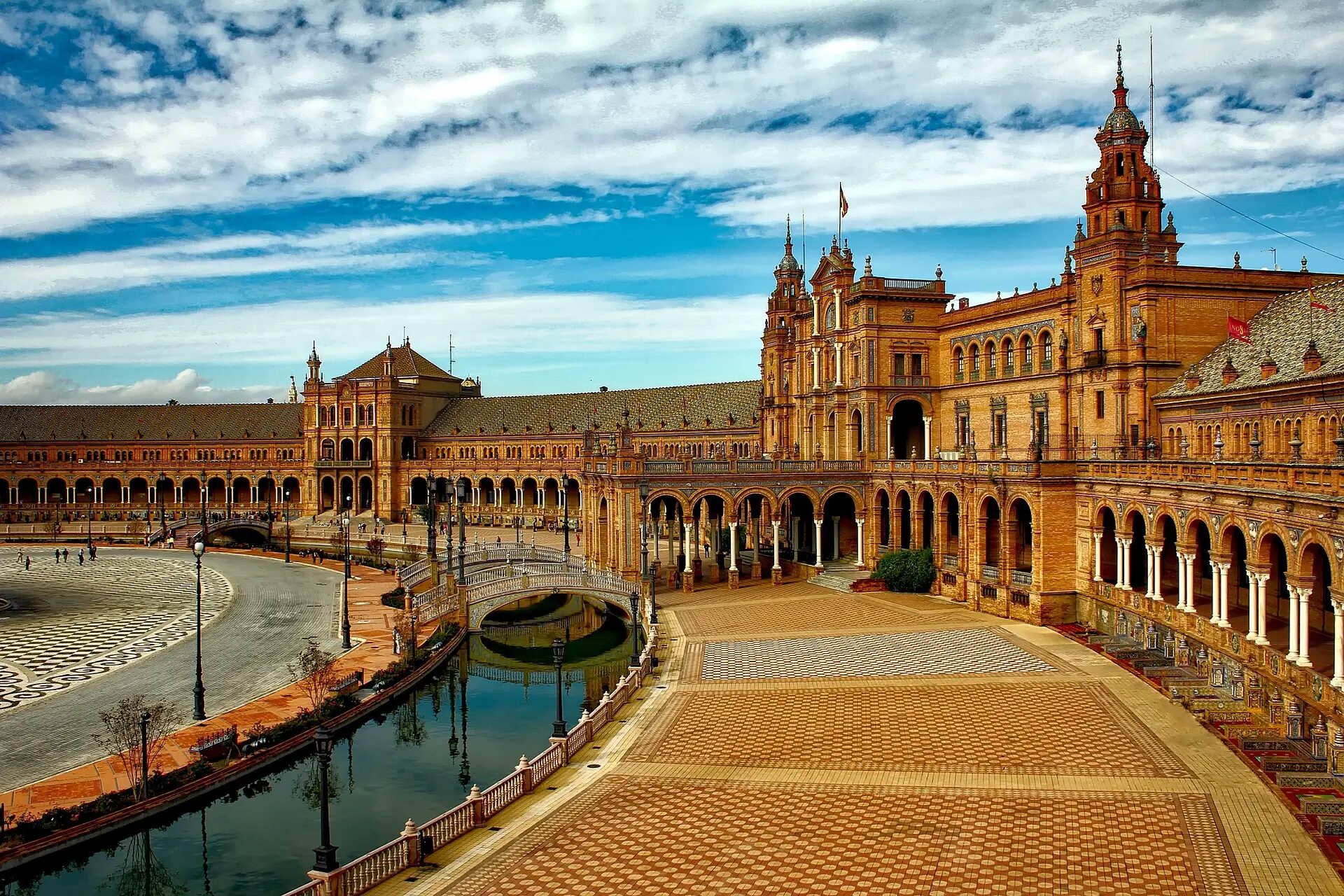During conversations with numerous travel advisors attending this year’s Travel Leaders International Luxury Forum in Opatija, Croatia, one question repeatedly surfaced: where are luxury clients booking these days? Is there a new Maldives alternative emerging? Could San Marino be positioning itself as the new Monaco? While speculation might suggest exotic new destinations like Buenos Aires’ palace hotels or undiscovered corners of the globe, the surprising answer confounded expectations. The destinations dominating luxury travel bookings in 2025 aren’t remote archipelagos or emerging markets—they’re Spain and Portugal, the Iberian Peninsula duo that some might consider travel clichés given their decades-long popularity as beachy, foodie, cultural hot spots. Yet luxury travel advisors working with high-net-worth clients consistently report these familiar destinations are experiencing unprecedented demand from wealthy travelers seeking not the obvious tourist circuits of Barcelona or Lisbon, but rather the “undertouristed” regions within these established countries that offer exclusive experiences, emerging luxury properties, and the comfort of proven infrastructure combined with authentic discovery.
The Counterintuitive Luxury Travel Trend
Familiar Destinations, Undiscovered Regions
The Spain and Portugal luxury boom mirrors themes articulated by Italian Tourism Minister Daniela Santanchè at the World Travel and Tourism Summit in Rome, who highlighted Italy’s “undertouristed” regions. Rather than steering wealthy clients toward off-the-beaten-path destinations in Sub-Saharan Africa or Central Asia—worthy future popular destinations though they may be—luxury travel advisors increasingly recommend less-visited areas within places clients already know and love.
This strategy reflects pragmatic wisdom: high-net-worth travelers appreciate discovery, but within frameworks of familiarity, quality assurance, and established infrastructure. The Iberian Peninsula delivers this balance perfectly—the comfort of known destinations with the excitement of unexplored regions.
Exclusive Spain: Beyond Barcelona and Madrid
Sotogrande: Where Soccer Stars Escape
“Sotogrande,” says Kyle Oram, CEO of KVI Travel in Vancouver, when asked about new destinations for his HNW clientele. “A lot of the European soccer stars go there. Messi’s got a hotel there. They’re not so public facing. You can have private polo lessons, you can golf in these exclusive places. Luxury shopping, with a private shopper, instead of going to Dior, they’ll come to you.”
Sotogrande, located in Andalusia near Gibraltar, represents exactly what luxury travelers seek—exclusivity, privacy, celebrity cachet, and world-class amenities without the crowds that plague Barcelona or Madrid. The destination offers championship golf courses, exclusive polo clubs, pristine beaches, and marina lifestyle appealing to those seeking sophisticated retreats.
Ethical Considerations in Luxury Travel
Values-Driven Destination Choices
When discussing emerging destinations like Saudi Arabia—currently investing billions to rival Dubai’s tourism infrastructure—Oram articulated perspective reflecting growing ethical luxury travel considerations:
“My COO is Israeli, Jewish, a woman, a lesbian, four things that would get her shot in a Muslim country, and I’m not going to send my tourist dollars to that kind of place,” he explained. “The laws of your country still say women aren’t equal and gays should be shot? I know it’s changing, and I want to encourage the change, but it’s a touchy subject. I would rather give my clients to places that treat people equally.”
This values-driven approach to luxury destination selection represents evolving priorities among high-end travel advisors and their clients, where human rights and gender equality factor into recommendations alongside amenities and experiences.
Portugal’s Luxury Evolution
From Overlooked to On-Par
“Portugal wasn’t up to the level that I think a luxury traveller was looking for,” says Natalie Kloss-Biagini of Travel Abundance in Austin, Texas, “and now they’re coming on par.”
Portugal’s luxury transformation manifests across multiple regions:
Douro Valley: Home to new properties like Six Senses and the upcoming BOA wellness resort conversion from Quinta de Barroca in Armamar Algarve: Emerging boutique properties complementing established resorts Lisbon: Gorgeous new hotels elevating the capital’s accommodation options Porto: The Yeatman hotel, shaped like port bottles with “layers and layers of balconies” on the Vila Nova de Gaia side, offering spectacular Porto views Alentejo: The southern region described as “the Hamptons of Portugal“
The Appeal of Independent Properties
A key selling point for Portugal luxury travel, according to Kloss-Biagini and her colleagues, is the absence of ubiquitous chains.
“It hasn’t been whitewashed with the brands,” she explains. “The big names haven’t come in yet, the Marriotts, the Hiltons.”
This independent property landscape appeals to luxury travelers seeking authentic experiences and distinctive accommodations rather than standardized luxury chain hotels. For those asking what makes Portugal luxury travel special, this boutique character represents significant differentiation.
River Cruises: Portugal’s Emerging Strength
Wine-Focused Douro Cruises
Lola Vassiliadis, owner of Cruise Holidays of Oakville, Ontario, highlighted Portugal for river cruises, especially wine-focused sailings along the Douro River. These voyages combine luxury small-ship cruising with Portuguese wine culture, visiting century-old quintas (wine estates) and sailing through UNESCO World Heritage landscapes.
Douro River cruises represent growing river cruise market segment, offering alternatives to the crowded Rhine and Danube routes while delivering equally compelling cultural and culinary experiences.
Industry-Wide Validation
Travel Leaders’ Confirmation
Eva Damato, Travel Leaders’ senior director of luxury lifestyle marketing, confirmed the trend, listing both Portugal and Spain as the most heavily discussed and sold destinations since joining the company in January.
This validation from Travel Leaders—one of North America’s largest travel agency networks—indicates the Spain Portugal luxury trend extends beyond individual advisors to represent genuine market shift observable across the luxury travel industry.
Why Familiar Beats Exotic in Current Market
Infrastructure and Risk Management
Travel advisors explained that the combination of familiarity and well-established tourism infrastructure makes Spain and Portugal easier sells than entirely new destinations. This proves particularly important as markets fluctuate and big-spending travelers become, temporarily at least, less willing to venture into complete unknowns.
The practical advantages include:
Proven accommodation standards: Established luxury property track records Reliable infrastructure: Transportation, communications, medical facilities Culinary excellence: World-renowned food scenes with Michelin restaurants Cultural depth: Centuries of art, architecture, and tradition Political stability: EU member states with predictable governance Ease of access: Excellent air connections from North America
Economic Uncertainty Influences
Current economic conditions create environment where even wealthy travelers exercise slightly more caution. The familiar destinations of Spain and Portugal reduce perceived risk while still delivering discovery through regional exploration rather than country exploration.
Regional Gems Attracting Luxury Travelers
Spain’s Undiscovered Corners
Beyond Sotogrande, Spain offers numerous regions appealing to luxury travelers:
Basque Country: San Sebastián’s Michelin-starred cuisine and boutique hotels Galicia: Rugged coastline, seafood, and Santiago de Compostela Mallorca’s interior: Away from beach resorts, authentic villages and luxury fincas Rioja wine region: Cutting-edge architecture meets centuries-old winemaking
Portugal’s Emerging Regions
Similarly, Portugal extends far beyond Lisbon and the Algarve:
Comporta: The coastal region attracting design-conscious travelers Azores: Atlantic archipelago offering adventure luxury Madeira: Subtropical island with hiking, gardens, and historic quintas Central Portugal: Medieval towns and castle hotels
What This Means for Future Luxury Travel
Will France and Italy Follow?
The article concludes by asking: Can France and Italy be far behind? These countries already dominate European luxury travel, but like Spain and Portugal, they contain vast undertouristed regions.
France’s potential extends beyond Paris and Provence to Burgundy, Jura, Corsica, and lesser-known corners. Italy’s treasures exist well beyond Rome, Florence, and Venice in regions like Le Marche, Basilicata, and Friuli.
The Spain Portugal trend suggests luxury travel may be entering phase prioritizing depth over breadth—deeper exploration of established destinations rather than endless pursuit of virgin territory.
Implications for Travelers
For luxury travelers considering 2025-2026 trips, the Spain Portugal focus offers validation: these aren’t tired retreads but rather evolved destinations offering fresh perspectives, new properties, and undiscovered regions within familiar frameworks.
The trend also signals that seeking “undiscovered” doesn’t require traveling to politically unstable or infrastructure-challenged regions—sometimes the best discoveries hide within places we thought we already knew.
The Luxury Travel Paradox
The surprising dominance of Spain and Portugal in luxury travel bookings represents fascinating paradox: in an industry obsessed with discovering the next big thing, the actual luxury travel market gravitates toward the last generation’s “next big things,” now matured into sophisticated destinations offering the perfect balance of familiarity and discovery.
For travel advisors navigating economic uncertainty while serving demanding high-net-worth clients, recommending proven destinations with unexplored dimensions reduces risk while maintaining the discovery element that makes travel exciting. The Iberian Peninsula delivers this rare combination, explaining why conversations at luxury travel forums increasingly center on places some might have dismissed as too obvious.
The lesson extends beyond geography: sometimes the most innovative travel experiences come not from finding entirely new places, but from seeing familiar destinations through fresh eyes, accessing exclusive experiences, and exploring regions that existed in plain sight but outside our previous awareness.
At The Inspiring Insight, we believe the most valuable travel trends are those grounded in actual booking data rather than speculation about the next exotic destination. The Spain Portugal luxury travel boom represents real market movement driven by experienced travel advisors serving sophisticated clients—not marketing hype or wishful thinking. Whether you’re a luxury traveler planning European trips, a travel professional seeking booking insights, or simply curious about where the world’s wealthy choose to vacation, understanding why established destinations are resurging provides valuable perspective on how luxury travel actually evolves. For more insider travel industry analysis, luxury destination guides, and trends shaping high-end travel, explore our complete collection of content connecting you with the real stories behind travel headlines and helping you make more informed decisions about your own journeys.



